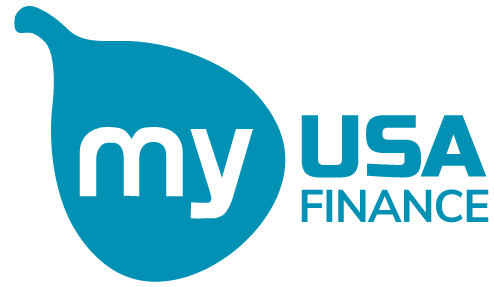When applying for a loan, you might have the option to include a co-borrower or co-signer. While the two terms sound similar, they have different meanings and can impact the terms of your loan.
Having a co-borrower or a co-signer on your loan application may increase your chances of obtaining a loan at a lower interest rate. Therefore, it is crucial to understand the differences between the two to decide which option is better for you.
What are the differences between a co-signer and a co-borrower?
The primary difference between a co-signer and a co-borrower is the level of responsibility for loan repayment.
Co-borrowers have greater responsibility because their name is on the loan agreement. They are expected to make payment and have equal access to the loan as the borrower. Co-signers are only responsible for making payments if the borrower cannot.
Looking for a Personal Loan?
Explore your options today!
What is a cosigner?
A co-signer uses their credit score and financial strength to help you qualify for a loan. They act as a second applicant on your loan application.
Co-signers are responsible for payments if you miss them. They usually have a close relationship with the primary borrower and a better credit score or higher income, which can improve the chances of getting the loan approved.
Related article: Personal Loans with A Co-signer
Pros and cons of a co-signer
- Access loans with no/low credit
- Better loan terms with a co-signer
- Boosts credit with timely payments
Cons
- Access loans with no/low credit
- Better loan terms with a co-signer
- Boosts credit with timely payments
What is a co-borrower?
A co-borrower, also known as a co-applicant or joint applicant, is an individual who shares the obligation of loan repayment with you and has the right to use the loan funds.
When you apply for a loan with a co-borrower, the lender becomes more confident that you can repay it. This is because the lender knows that there are multiple sources of income to rely on.
By sharing the responsibility of the loan with another person, you may get approved for a larger loan amount because the lender sees it as less risky.
Pros and cons of a co-borrower
Pros
- Improves loan approval odds
- Offers better loan terms, such as lower interest rates and higher amounts
- Shared responsibility for repayment
- Can improve credit scores with on-time payments.
Cons
- Both parties face legal responsibility if the loan defaults
- Initial credit checks may slightly lower credit scores
How to choose between a co-signer or co-borrower
Consider your financial goals when choosing between a co-signer and a co-borrower for a loan.
Co-signers improve your credit score without contributing financially, but face risks if you default. Co-borrowers share responsibilities and benefits, often receiving better terms.
Assess your situation and understand the commitments and risks of each option before deciding.
What to do Before co-borrowing or co-signing
Before co-borrowing or cosigning a loan, it’s important to communicate effectively. Follow these steps to ensure clear communication.
Steps to take before co-borrowing or co-signing:
- Discuss why you need the loan: Initiate an in-depth discussion with the potential co-borrower or co-signer.
- Assess the Need and Alternatives: Consider whether the loan is necessary and if there might be other ways to meet your financial needs.
- Be Open About Finances: Share financial details like credit scores, income, and debts for informed decision-making
- Put It in Writing: Create a contract to outline payment responsibilities, loan-related property, and what to do in financial trouble.
- Know the Laws & Rights: Understand your loan’s co-borrower and co-signer rights and laws, significantly how they impact your credit and property.
- Get Expert Advice: Consult a financial advisor for customized advice on whether this decision aligns with your financial goals.
These steps can help you make a more informed and safer decision when considering co-borrowing or cosigning a loan.
How does co-borrowing or cosigning affect my credit score?
Both co-borrowing and cosigning can affect your credit score. Timely payments can boost your score, while defaults or late payments can negatively impact both the primary borrower’s and the co-borrower’s or co-signer’s credit scores.
Final Thoughts: co-borrower vs. co-signer
It is important to differentiate between a co-borrower and a co-signer in order to make informed financial decisions.
A co-borrower is equally responsible for loan repayment and enjoys shared ownership rights. In contrast, a co-signer commits to repaying the loan in case of default, without receiving ownership benefits.
It’s crucial to choose the option that best suits your financial strategy, maintain transparent communication, thoroughly prepare for potential financial shifts, and comprehend the significant impact of your decision on your current and future financial health.
FAQ's - co-borrower vs. co-signer
Co-borrowers share responsibility and ownership of loan assets, while co-signers only become involved if the primary borrower defaults.
A co-signer or co-borrower can improve your loan application by providing added security and financial strength, potentially resulting in better rates and higher loan amounts.
No, co-signers don’t have ownership rights over the assets secured by the loan. They are responsible for payments only if the primary borrower defaults.
If the primary borrower defaults, the co-borrower shares the responsibility for repayment.
In the case of a co-signer, they are required to step in and make payments to prevent default.












